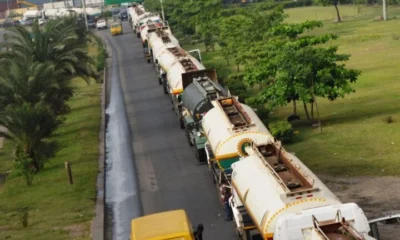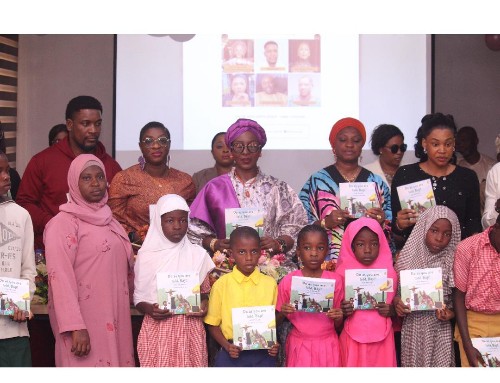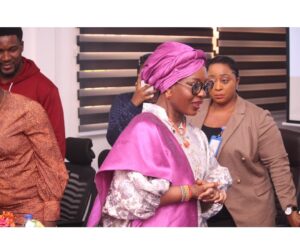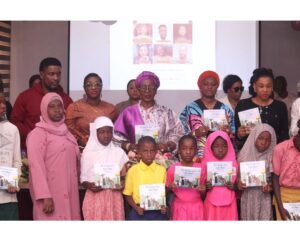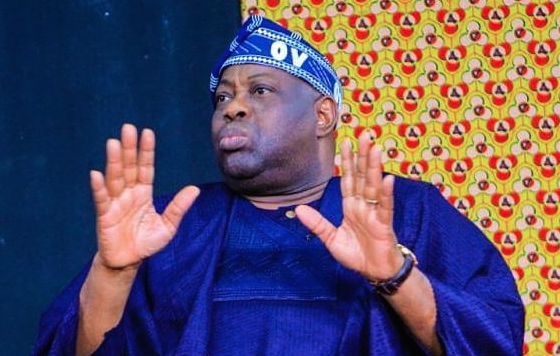A delegation from the Trade Union Congress (TUC), on Sunday, met with a team selected by President Bola Tinubu over the fuel subsidy controversy.
Dele Alake, a member of the presidential delegation at the meeting held at the State House in Abuja, briefed journalists after the meeting.
Mr Alake suggested that the TUC was already warming up to accepting the removal of the petrol subsidy by the government on the condition that the government meets its demands.
“The TUC that attended today’s meeting presented a list of demands and those demands we have studied and we are going to present to Mr President, for his consideration,” Mr Alake said. “But those demands we can announce to Nigerians that a lot of the items on the list are not impracticable.”
One major item on the list of demands by the TUC, according to Mr Alake, is an increase in workers’ salaries.
“Now, most important and top priority on the list which the government is also looking at very seriously and the president has announced before, is the issue of the minimum wage which the Labour movement has demanded is the consequential impact of this removal of subsidy.
“So, government is looking at that and Mr President is most likely going to constitute a tripartite committee, that is a committee of the federal government, including the state and then the organised Labour and the private sector.”
Although Mr Alake did not list the other items on the TUC list of demands, he said there was also a demand for tax breaks for workers.
He also said that the Nigeria Labour Congress (NLC) was not at the meeting and that further meetings, including with the NLC, were planned.
Both the NLC and the TUC had called on their member unions to commence a nationwide strike on Wednesday after the government announced the removal of subsidy on petrol last week.
The removal of the subsidy led to an increase of almost 200 percent in petrol prices nationwide.
The government has repeatedly said the subsidy on petrol was unsustainable due to the amount spent. Over N4 trillion was used to subsidise petrol last year, more than the government spent on education and healthcare combined.
However, critics of the fuel subsidy removal argue that it will further weaken the purchasing power of Nigerians and impoverish more citizens in a country where almost half of the population is poor.
Read the transcript of Mr. Alake’s full interview with journalists below.
Well, as you all know, we had this reconvened meeting today as we promised you few days ago when we had the initial meeting with the Labour movement.
We said we were going to reconvene today to keep the engagement on in order to diffuse the tension in the land as a result of the withdrawal of subsidy, which is a reality.
Now, we are very happy to announce to Nigerians that this engagement has been very productive. The TUC that attended today’s meeting presented a list of demands and those demands we have studied and we are going to present to Mr President, for his consideration. But those demands we can announce to Nigerians that a lot of the items on the list are not impracticable. What we need to do is to study the numbers very well. Then, we have asked the TUC to also give us a leeway to consult very exhaustively and reconvene on Tuesday to actually look at the numbers, viability, practicability of all the items that have been presented to us.
Now, most important and top priority on the list which the government is also looking at very seriously and the president has announced before, is the issue of the minimum wage which the Labour movement has demanded is the consequential impact of this removal of subsidy.
So, government is looking at that and Mr President is most likely going to constitute a tripartite committee, that is a committee of the federal government, including the state and then the organised Labour and the private sector.
Now, this is a tripartite arrangement, it will be a committee that will study all the dynamics of a wage increase in percentages, the numbers and the categories that will be affected.
So, by Tuesday when we come back to reconvene, to meet with the TUC again, we should have very concrete items to present to the world. But the most important thing for today is that we are making appreciable progress with the Labour.
What are the other demands beyond the minimum wage?
It is a list but we are not going to be listing all of them now. The most important is the minimum wage, that is increase of minimum wage. Because, when this thing is removed, the argument of Labour is that there is an immediate impact on the workers, on the purchasing power because the price of fuel has gone up. So, that will necessarily reduce the purchasing power of the average worker. So, the next thing of immediate consequence is to increase the purchasing power of the worker. So that to me and to all of us on this side is the top most priority on the list.
There are other things like the tax holidays which some categories of workers will be beneficiaries. But the most important is the minimum wage.
No, we are not but we are making efforts to reach NLC. We all agreed that we are going to meet here but again, in this game there are dynamics, sometime they could be meeting with their own executive and not able to meet with us, or they could want to postpone or they have not actually articulated their list of demands as the TUC. But we cannot second guess why they are not here. But efforts are being made to reach them, we are not isolating them at all.
How soon will the committee be set up?
Very very soon. We are going to meet Mr President now and we are going to give him a feedback on this and he is going to take an immediate decision.
And like I said, Mr President himself, you all reported him, he has said that there will be a review of the minimum wage, you all reported it.
So, we are not in disagreement with labour at all on that on that particular issue.
One of the President’s spokesmen, Bayo Onanuga accused the NLC of pandering to the wishes of Peter Obi, did that come up in the discussion?
No not at all. It has no relevance to the discussion on the concrete terms of the welfare of the workers. Our discussion was majorly on the welfare of workers, how to cushion the impact of this subsidy removal on workers that’s all. Not on any political partisanship.
Who is leading the government team in this negotiation?
Of course, you can see all of us here, you can see the GCEO of NNPC, you can see some of us who have been mandated by the president. And don’t forget that a presidential system of government is executive in capacity. The president can appoint anybody, he can even appoint consultants to act on his behalf, so there is no issue about that. It is not actually germane.
Were you able to convince them to shelve the strike?
Of course, we discussed that, and that is why we are still going to reconvene on Tuesday and that is appreciable progress.
Earlier, Labour said you must revert to status quo, did you attempt to touch on that?
Of course, we did. We touched on that, everybody looked at the practicability of that, the viability and otherwise. Now, the issue is that we will close all of those ones on Tuesday when we reconvene. Concrete decisions will be taken about that and then we will reach logical conclusions.
Credit: Premium Times

 BIG STORY5 days ago
BIG STORY5 days ago
 BIG STORY3 days ago
BIG STORY3 days ago
 BIG STORY4 days ago
BIG STORY4 days ago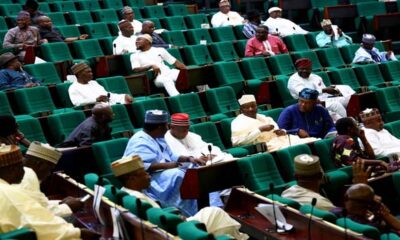
 BIG STORY4 days ago
BIG STORY4 days ago
 BIG STORY3 days ago
BIG STORY3 days ago
 BIG STORY18 hours ago
BIG STORY18 hours ago
 BIG STORY18 hours ago
BIG STORY18 hours ago
 BIG STORY17 hours ago
BIG STORY17 hours ago













